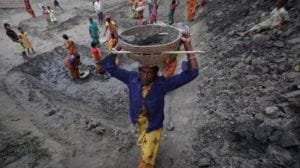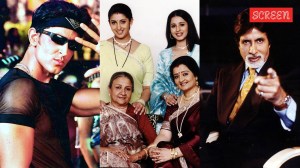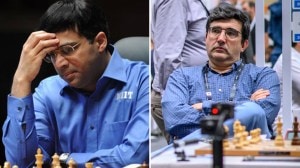Vedas: Govt ready with Rs 10 cr
The oral tradition of Vedic chanting from Atharvaveda, Samaveda and Yajurveda — endangered as it does not have an authentic printed ver...

The oral tradition of Vedic chanting from Atharvaveda, Samaveda and Yajurveda — endangered as it does not have an authentic printed version or written scriptures to sustain it — is about to get a new lease of life.
To nominate this great-but-shrinking oral tradition under UNESCO’s famous World (intangible) Heritage Preservation programme, the Culture Ministry recently applied for a grant of US $2,500, which will go toward preparing the preliminary documentation material. But the Ministry has decided to foot the entire bill — Rs 10 crore — if the grant does not come through.
‘‘The Department is prepared to meet the expenses needed to prepare the preliminary documentation, which needs to be in place to nominate the Vedic shakhas (as the oral chantings are called) in the intangible world heritage slot,’’ Secretary Culture Gopalaswamy says.
Two years ago, UNESCO chose Koodiyattam, Kerala’s performing art tradition, for its prestigious intangible world heritage preservation programme. It was one of 19 forms chosen from all over the world.
Gopalaswamy says four shakhas have been identified — the Pippalada shakha of the Atharvaveda, a tradition of chanting typical to Orissa; Maitrayani shakha of Krishna Yajurveda, prevalent in Maharashtra and Madhya Pradesh; Jaiminya shakha of Samaveda, practiced in Kerala and Tamil Nadu; and Ranainya shakha of Samaveda, found only in Karanataka.
‘‘Among the four, the Pippalada and Ranainya shakhas are even more endangered. There are very few people left in these two traditions who have the expertise to chant these forms,’’ a senior Culture Ministry official said.
In fact, after Independence there were about 64 shakhas of the original 108, which were still ‘‘alive’’ and ‘‘performing’’. Only 10 remain.
‘‘We have chosen four from the ten forms that are available now. There is not much time left to preserve them,’’ a Delhi-based Sanksrit scholar says.
The Ministry has appointed a task-force under Suddha Gopalakrishna of Indira Gandhi National Centre for Arts. The members include: Om Prakash Pande from Maharishi Sandipani Rashtriya Veda Vidya Prasthistan, Ujjain; Kumtabh Shastri from Rashtriya Sanskrit Sansthan; Madadeva from Veda Vidyapeetha Prathistan, Tirupati; Dina Pant Pareke from Orissa; and Prof Hridya Ranjan Mishra from BHU.


- 01
- 02
- 03
- 04
- 05





























